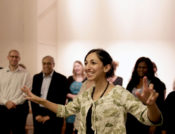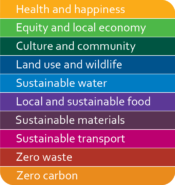 Flexible preparation for your new grade
Flexible preparation for your new grade Apply Today: New Cohort Starts Nov. 2025
Apply Today: New Cohort Starts Nov. 2025 The Journey is Everything
The Journey is Everything Association for a Healing Education
Association for a Healing Education Immersive Academics and Arts
Immersive Academics and Arts Roadmap to Literacy Books & Courses
Roadmap to Literacy Books & Courses Summer Programs - Culminating Class Trips
Summer Programs - Culminating Class Trips Space speaks. Its language is movement.
Space speaks. Its language is movement. Transforming Voices Worldwide
Transforming Voices Worldwide ~ Ensoul Your World With Color ~
~ Ensoul Your World With Color ~ Great books for Waldorf Teachers & Families
Great books for Waldorf Teachers & Families Waldorf-inspired Homeschool Curriculum
Waldorf-inspired Homeschool Curriculum Middle School Science With Roberto Trostli
Middle School Science With Roberto Trostli Bringing Love to Learning for a Lifetime
Bringing Love to Learning for a Lifetime Jamie York Books, Resources, Workshops
Jamie York Books, Resources, Workshops Caring for All Stages of Life
Caring for All Stages of Life Train to Teach in Seattle
Train to Teach in Seattle Waldorf Training in Australia
Waldorf Training in Australia Quality Education in the Heartland
Quality Education in the Heartland Bay Area Teacher Training
Bay Area Teacher Training Full-Time Teacher Education
Full-Time Teacher Education Everything a Teacher Needs
Everything a Teacher Needs
Would you like to become a sponsor?
Waldorf News

Waldorf 100 – The Film
March 20, 2017
The point of this film is to introduce the concept of the upcoming Waldorf-100 Centennial in 2019-2020. The goal is to help families and schools around the world recognize that Waldorf education can, and does, have an important impact on the challenges we face in the world today. Too often we get stuck focusing on our own school and its struggles, but there is a much larger ethos out there that we are all part of. Collectively we are working to change the world and make a better future. The hope and aspiration of this Centennial event is not to simply have a big anniversary party. It's to launch Waldorf education into the 21st Century with bold new sense of confidence and commitment to the future – a future that our children will help determine. More »

Napping Can Dramatically Increase Learning, Memory, Awareness, and More
March 13, 2017
The stigma against napping is finally starting to decrease — and for good reason. Taking a timeout to sleep during the day does much more than just give us a quick energy boost. It also confers some serious health and cognitive advantages as well. Here's what the latest science tells us. Unlike 85% of all mammalian species, humans sleep just once a day. Scientists aren't sure if we're naturally monophasic (as opposed to polyphasic) or if it's modern society that has made us so. Regardless, it's clear that we're not getting enough sleep. Nearly a third of us say we're simply not getting enough of it. Power naps can alleviate our so-called sleep deficits, but they can also boost our brains, including improvements to creative problem solving, verbal memory, perceptual learning, object learning, and statistical learning. They help us with math, logical reasoning, our reaction times, and symbol recognition. Naps improve our mood and feelings of sleepiness and fatigue. Not only that, napping is good for our heart, blood pressure, stress levels, and surprisingly, even weight management. More »

Why singing improves well-being
March 6, 2017
I'm sometimes asked why we use singing in our sessions. I'm not surprised – and not only because singing is, ahem, a touch unusual in leadership development. Thing is, however natural it might be, singing comes with baggage. It’s always a loaded concept, whether that's with feelings of joy or outright fear, or something in between. And actually, in our work, all of that is useful. That element of fear and exposure can help you notice how you respond to risk and uncertainty. And do so in a way that’s not only immediate, but that is all-encompassing: physically, intellectually and emotionally. In pulling you out of your comfort zone, singing can take you to a place of stretch. And that, we know from recent research, is where most of us learn best and most memorably. It's even likely that, because it’s a bit risky, singing actually increases your resilience. We're currently collaborating with neurobiologists at Ashridge Business School to find at whether public singing creates templates in your brain that help you tackle other challenges more easily. We'll keep you posted on our findings. So I embrace that element of fear. And one of the things I find fascinating about singing is how quickly it can take you from that place of fear to one of connection, trust, and well-being. And for lots of people, it can happen within the space of a single song. "When you sing with other people your heartbeats sychronize, which may explain why singing together can create a sense of shared perspective." More »

In an age of robots, schools are teaching our children to be redundant: A regime of cramming and testing is crushing young people’s instinct to learn and destroying their future
February 27, 2017
In the future, if you want a job, you must be as unlike a machine as possible: creative, critical and socially skilled. So why are children being taught to behave like machines? Children learn best when teaching aligns with their natural exuberance, energy and curiosity. So why are they dragooned into rows and made to sit still while they are stuffed with facts? We succeed in adulthood through collaboration. So why is collaboration in tests and exams called cheating? Governments claim to want to reduce the number of children being excluded from school. So why are their curriculums and tests so narrow that they alienate any child whose mind does not work in a particular way? The best teachers use their character, creativity and inspiration to trigger children’s instinct to learn. So why are character, creativity and inspiration suppressed by a stifling regime of micromanagement? There is, as Graham Brown-Martin explains in his book Learning {Re}imagined, a common reason for these perversities. Our schools were designed to produce the workforce required by 19th-century factories. The desired product was workers who would sit silently at their benches all day, behaving identically, to produce identical products, submitting to punishment if they failed to achieve the requisite standards. Collaboration and critical thinking were just what the factory owners wished to discourage. As far as relevance and utility are concerned, we might as well train children to operate a spinning jenny. Our schools teach skills that are not only redundant but counter-productive. Our children suffer this life-defying, dehumanising system for nothing. "At present we are stuck with the social engineering of an industrial workforce in a post-industrial era" More »

Credo High: The World's First One Planet School
February 14, 2017
Next month, Credo High School in Rohnert Park, California, will move to its permanent campus within SOMO Village, a groundbreaking sustainable community planned by Brad Baker of SOMO Village, LLC and the international nonprofit, One Planet Communities. SOMO Village intends to be the model sustainable community for North America. Locating Credo High within SOMO Village has always been the intention of Credo developers, who believe that housing their students within the sustainability guidelines of SOMO Village will develop and deepen students’ own values around the many aspects of sustainability. In addition to 1600 homes, the 200-acre, live-work development will include green businesses, a 250-unit retirement community of the San Francisco Zen Center, playing fields, music venues, arts organizations and 25 acres of farmable land. Credo has been approved to become the world’s first One Planet School. Moving to SOMO Village is the culmination of a nine-year plan by Credo developers. Credo will convert an existing 35,000 sq. ft. portion of a building that was recently a business incubator and once a Hewlett Packard research facility into their school campus. More »
 Recent Jobs
Recent Jobs
View more jobs »
 Newsletter Archive
Newsletter Archive
 Join the Mailing List!
Join the Mailing List!
Stay Connected…
Each week receive the Waldorf News Weekly Update, full of news, events, and more. Keep abreast of what's happening with Waldorf education.
 RSS Feeds
RSS Feeds